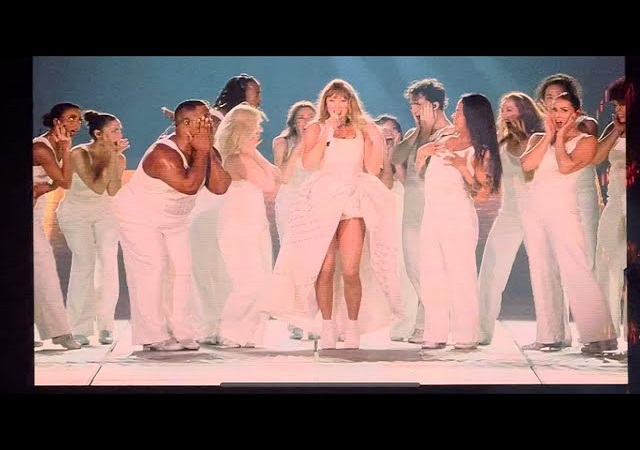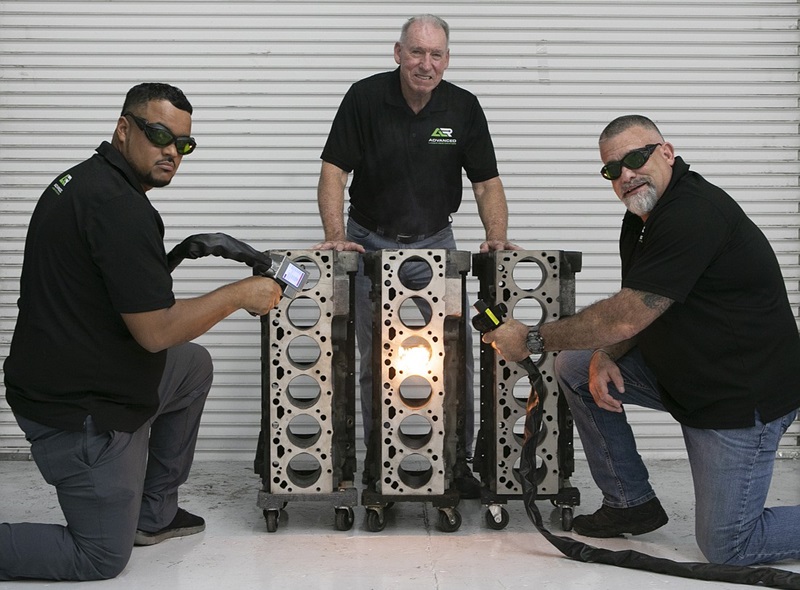When I think of the phrase “But Daddy I Love Him,” I can’t help but recall the universal struggles of love and acceptance. This phrase evokes emotions tied to family dynamics, youthful rebellion, and the complexities of romantic relationships. In this article, I’ll explore five inspiring stories that embody this sentiment, showing how love can transcend obstacles and lead to personal growth.
Highlights
ToggleStory 1: A Daughter’s Courage to Love
In a small town, a young woman named Mia faced disapproval from her father regarding her boyfriend, Jake. Despite her father’s objections, Mia stood firm in her feelings.
The Power of Communication
Mia decided to have an honest conversation with her father. Here’s how she approached it:
- Expressed her feelings: Mia explained why she loved Jake, detailing his positive traits and the happiness he brought into her life.
- Addressed concerns: She listened to her father’s worries and acknowledged his protective instincts.
- Compromised: Mia proposed a family dinner to let her father see Jake’s true character.
Ultimately, the dinner proved successful. Her father realized that Jake was respectful and caring. The experience taught Mia the importance of open dialogue and understanding in overcoming family conflicts.
Story 2: Love Beyond Borders
Sara fell in love with Alex, a charming exchange student from abroad. Their relationship blossomed despite cultural differences and the disapproval of Sara’s traditional parents.
Navigating Cultural Differences
Sara faced challenges related to her parents’ expectations, but she approached the situation with determination:
- Educated her parents: Sara shared information about Alex’s culture, showcasing the beauty of their differences.
- Involved her family: She invited Alex to family gatherings, allowing her parents to interact with him and understand his values.
- Shared experiences: Together, they participated in cultural events that highlighted both backgrounds.
Through patience and education, Sara’s parents gradually accepted Alex, realizing that love can bridge cultural divides.
Story 3: Finding Strength in Community
In a tight-knit community, a young man named Chris found himself in a same-sex relationship with his best friend, Mark. Initially, Chris feared how his conservative father would react.
The Importance of Support Networks
Instead of facing his fears alone, Chris sought support from friends and allies:
- Joined a support group: Chris found solace in a local LGBTQ+ group, connecting with others who faced similar challenges.
- Shared his journey: With encouragement, Chris began to open up to his father about his relationship.
- Advocated for love: He emphasized that love should always be celebrated, regardless of gender.
Eventually, Chris’s father came to accept his son’s relationship, realizing that love is universal. The experience highlighted the importance of community in navigating personal struggles.
Story 4: Second Chances and New Beginnings
When Emily fell in love with a man who had a troubled past, she faced harsh criticism from her family. They worried about her safety and future, but Emily felt strongly connected to him.
Overcoming Prejudices
Emily decided to stand by her partner, taking steps to address her family’s concerns:
- Introduced him to her family: Emily invited her partner to family events, allowing her family to see his growth and sincerity.
- Showcased his progress: She shared stories of how he was working on his issues and striving for a better future.
- Highlighted their bond: Emily expressed how their relationship motivated her partner to become a better person.
Gradually, her family began to accept him, realizing that love can inspire change and lead to personal redemption.
Story 5: The Power of Forgiveness
Lisa had a rocky relationship with her father due to her choice in partners. After years of estrangement, she decided to reach out and mend their relationship, especially when she fell in love with someone her father initially disapproved of.
Steps Toward Healing
Lisa approached the situation with a desire to heal and reconcile:
- Acknowledged past mistakes: She accepted her part in the strained relationship and expressed her regret.
- Showed her happiness: Lisa shared her joy and how her partner supported her personal growth.
- Invited her father to be part of her life: She emphasized the importance of family and wanted her father to be included in her happiness.
Through her efforts, Lisa and her father rebuilt their relationship. This journey taught her that love isn’t just romantic; it also encompasses family bonds and forgiveness.
Lessons Learned from These Stories
The stories shared above resonate with the phrase “But Daddy I Love Him.” They reflect a core truth: love requires courage, understanding, and communication. Here are some key takeaways:
- Open Communication: Honest conversations can bridge the gap between differing perspectives.
- Education and Patience: Teaching others about your relationship fosters understanding and acceptance.
- Community Support: Surrounding yourself with supportive friends can empower you to face challenges head-on.
- Love Can Inspire Change: Relationships can motivate individuals to become better versions of themselves.
- Healing Takes Time: Rebuilding familial bonds requires effort and a willingness to forgive.
But Daddy I Love Him Meaning
The phrase “But Daddy I Love Him” encapsulates a young woman’s heartfelt plea for her father’s understanding and acceptance of her romantic relationship. It highlights the universal struggle between parental expectations and personal feelings. In exploring the meaning of “But Daddy I Love Him,” we find themes of love, rebellion, and the deep emotional connections that often lead to conflicts between children and their parents. It’s a reminder that love can challenge familial bonds, forcing us to navigate complex emotions. To understand more about love and family dynamics, visit this insightful article here. In the end, the phrase “But Daddy I Love Him” symbolizes hope for reconciliation and understanding within families.
But Daddy I Love Him Lyrics
The lyrics of “But Daddy I Love Him” tell a poignant story of youthful love confronted by parental disapproval. Each line reflects the emotions of a daughter fighting to convey her feelings to her father. The repeated refrain “But Daddy I Love Him” serves as a powerful reminder of the struggle between familial duty and personal desire. As the narrative unfolds, listeners can relate to the longing for acceptance, which resonates deeply with anyone who has faced similar situations. The emotional depth of the song provides insight into the challenges of love. To explore more about the meaning behind popular lyrics, check out this link on lyric analysis. Ultimately, “But Daddy I Love Him” encourages dialogue about love and understanding.
But Daddy I Love Him Themes
The themes surrounding “But Daddy I Love Him” encompass love, acceptance, and the challenges faced in romantic relationships. The recurring phrase “But Daddy I Love Him” symbolizes a daughter’s longing for her father’s approval while asserting her feelings. These themes resonate with anyone who has navigated the turbulent waters of young love, especially when parental disapproval is involved. Each story tied to “But Daddy I Love Him” showcases the universal need for understanding and support in familial relationships. To explore the intricacies of love and acceptance in families, check out this article on family dynamics. In essence, the themes represented by “But Daddy I Love Him” remind us of the importance of love and empathy in overcoming challenges.
Stories About Love and Acceptance
Stories about love and acceptance often highlight the emotional struggles similar to the phrase “But Daddy I Love Him.” These narratives capture the essence of young love that clashes with familial expectations. When individuals declare, “But Daddy I Love Him,” they express their desire for understanding and validation. Such stories provide hope, showcasing the potential for reconciliation and mutual respect. By sharing experiences of love and acceptance, we can inspire others to navigate their relationships with compassion. For more touching stories about love and acceptance, explore this site here. Ultimately, the phrase “But Daddy I Love Him” serves as a powerful reminder that love is worth fighting for, even in the face of adversity.
FAQs
1. What does “But Daddy I Love Him” mean?
This phrase typically represents a daughter’s plea for her father’s understanding and acceptance of her romantic choices.
2. How can I address my parents’ disapproval of my partner?
Openly communicate your feelings, involve your partner in family activities, and express the positive aspects of your relationship.
3. What if my partner has a troubled past?
Focus on their growth and how your relationship inspires positive change. Share their progress with your family to ease concerns.
4. How important is community support in relationships?
Community support can provide encouragement and advice, helping individuals navigate challenging situations related to love and acceptance.
5. Can love truly change someone?
Yes, love has the power to inspire personal growth and transformation, encouraging individuals to become their best selves.
Conclusion
Reflecting on the phrase “But Daddy, I Love Him,” it becomes clear that love is a powerful force that can conquer obstacles and foster understanding. The stories of Mia, Sara, Chris, Emily, and Lisa remind us that with patience, communication, and support, love can thrive in even the most challenging circumstances. Whether it’s through family acceptance, cultural understanding, or the power of forgiveness, the journey of love is worth every effort.
For those interested in creativity, check out this link for valuable tips: Graphic Design Is My Passion.
Love may come with its struggles, but it ultimately enriches our lives and connects us to those who matter most.
You May Also Like:




